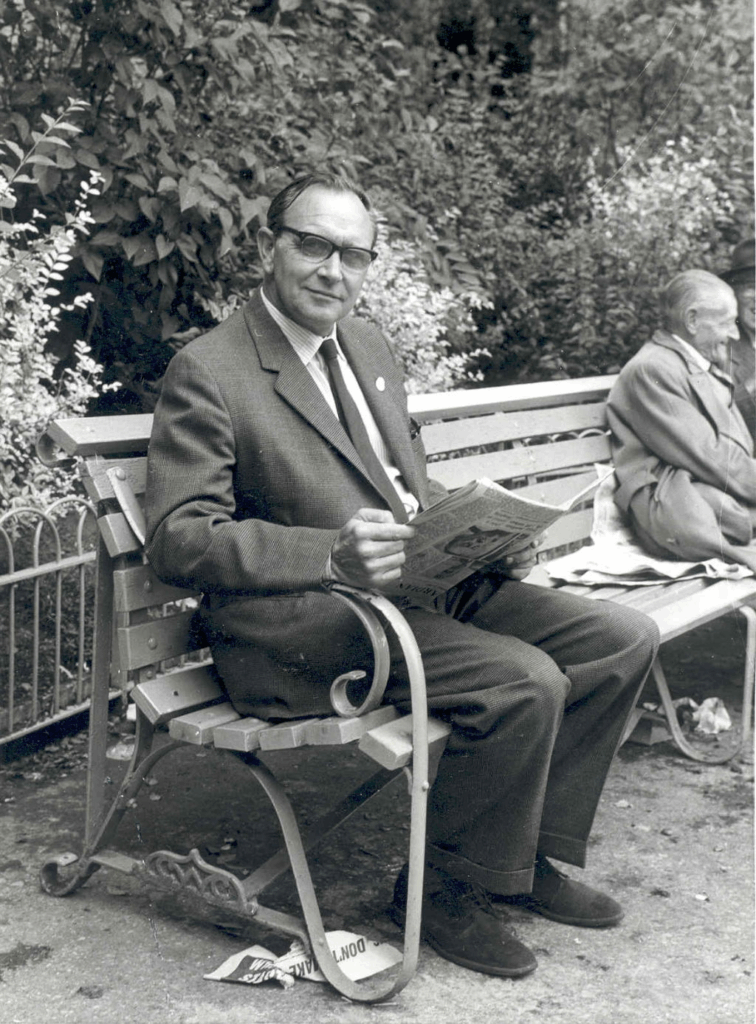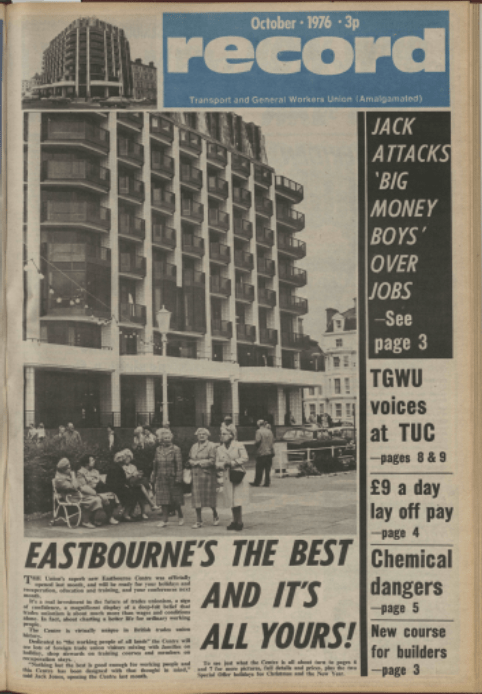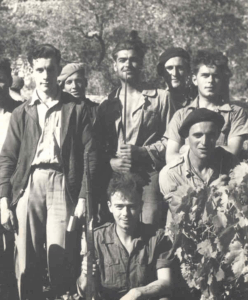Jack Jones holds significant historical and cultural ties to Eastbourne, particularly through his role in establishing The Eastbourne Centre, now known as The View Hotel.

Jack Jones, a prominent British trade union leader and General Secretary, (1969 to 1978), of the Transport and General Workers’ Union (TGWU), envisioned a dedicated space for workers’ recuperation, education, and conferences. He identified Eastbourne, with its peaceful seaside setting, as the ideal location for this initiative. The foundation stone was laid in 1974, and by October 1976, the Eastbourne Centre was officially opened, marking a unique achievement in trade union history.

Jack Jones was inspired to build the Eastbourne Centre after attending a Labour Party Conference in Brighton. He had observed how workers, particularly trade unionists, lacked dedicated, quality facilities for rest, education, and conferences. He wanted to create a space where working people could come together in comfort and solidarity—not just for meetings, but also for relaxation and cultural enrichment. His vision was rooted in the trade union movement’s belief in improving the lives of workers beyond just wages and conditions—supporting their well-being, education, and dignity. (Bread AND Roses).
This vision ultimately led to the founding of the Eastbourne Centre, which was a rare and ambitious project: a union-owned hotel and conference centre, dedicated to working-class needs. The dream of building a centre like the Eastbourne Centre was not only Jack Jones’s idea—but he was its main driving force and public champion. Many within the union leadership supported the idea, especially as the labour movement in the 1970s was focused on empowering and educating its members beyond traditional industrial concerns. However, Jack Jones gave the idea its urgency and vision.
As General Secretary of the TGWU, he had the leadership, influence, and determination to push it forward. His personal experience attending conferences in less-than-ideal facilities made the need feel real and immediate to him. He mobilised union resources and helped secure the support needed to turn the idea into a reality. So, while it was a collective union project in spirit and execution, Jack Jones was the heart and catalyst behind it.
JACK JONES (1913–2009) Trade Unionist | Anti-Fascist | Pensioners’ Champion

the Spanish Civil War
Photo Credit
Jack Jones was one of the most influential British trade union leaders of the 20th century. Born in Liverpool to a working-class family, he rose through the ranks to become General Secretary of the Transport and General Workers’ Union (TGWU) from 1969 to 1978, leading over 2 million members. He was a passionate advocate for workers’ rights, fair wages, pensions, and social justice.
Jones was a fierce anti-fascist, having fought in the Spanish Civil War with the International Brigade. He later became a key architect of the Social Contract in the 1970s, aligning trade unions with the Labour government to fight inflation and protect welfare.
After retirement, Jones remained active, leading the National Pensioners Convention and campaigning for dignity in old age. Known for his integrity and working-class pride, he was once described as the most powerful man in Britain.
“My life has been about fighting injustice.
That’s what trade unionism means to me.
Fairness, dignity, and solidarity.”
Jack Jones – Early Life and Jobs Timeline
1913: Born in Liverpool, into a working-class family.
1927: (Age 14): Left school to support his family during the Great Depression.
Began work in Liverpool’s docks and metalworks.
Late 1920s/Early 1930s: Worked as a:- steel cutter, crane driver, manual labourer in harsh industrial conditions
1932: (Age 19): Became a shop steward in the Transport and General Workers’ Union (TGWU). Began organizing workers and fighting for fair treatment.
1930s: Experienced unemployment, like many working-class people during the Great Depression. This deepened his commitment to workers’ rights and economic justice.
Mid-1930s: Won a union scholarship to Ruskin College, Oxford, where he studied politics and economics. This marked the beginning of his formal education in trade unionism.
Photo Credit : https://warwick.ac.uk/services/library/mrc/exhibitions/exhibitionsonline/jones